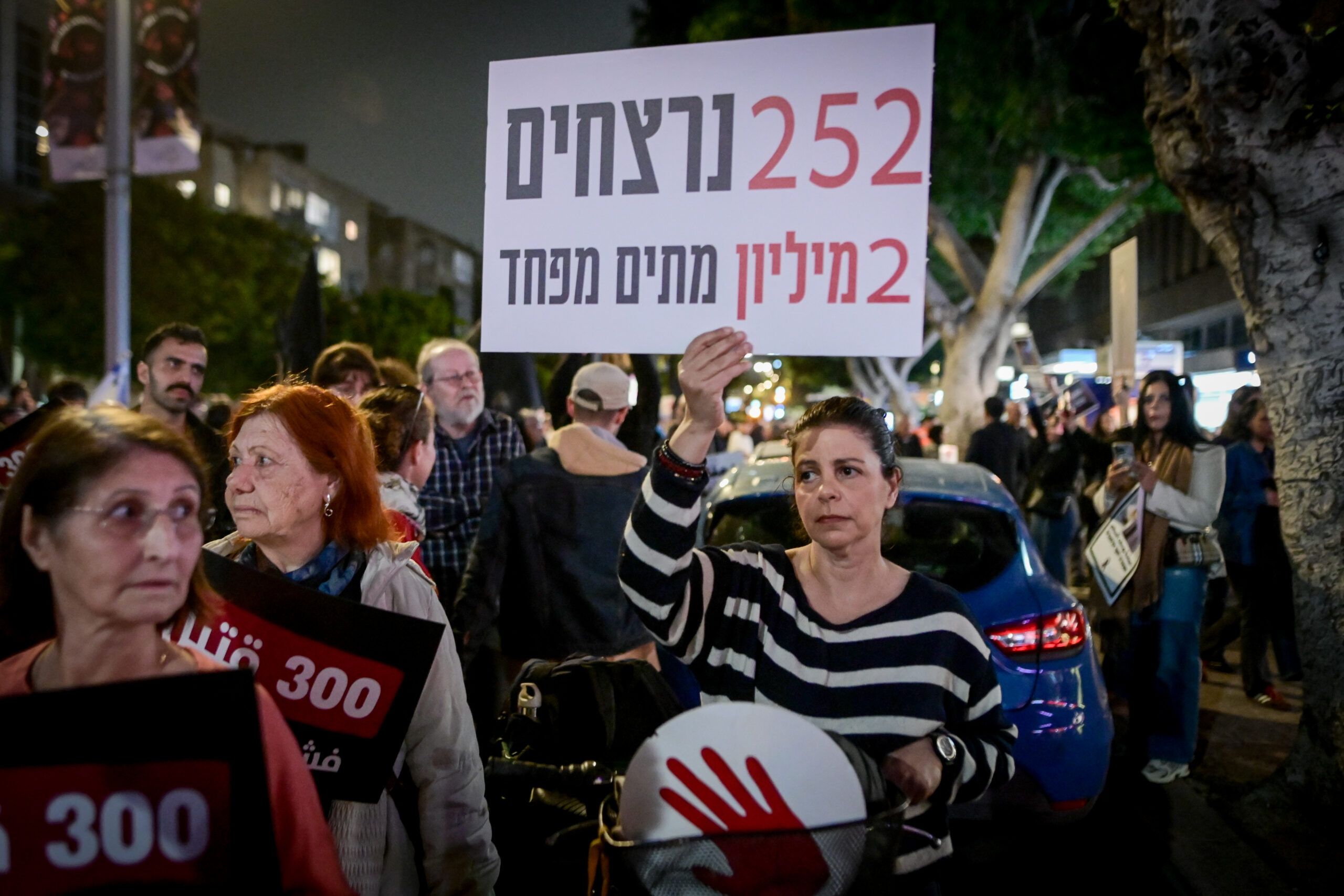Does the IDF need donations of equipment? It’s complicated
Over 360,000 people have been called up to reserve duty in the Israel Defense Forces since the outbreak of war on Saturday, the largest enlistment in 50 years.
Almost immediately, those reservists began putting out calls for donations for equipment: from food to socks to kneepads to ceramic armor to medical equipment. The spouses of reservists have organized fundraising drives to raise money for the equipment; communities in the United States have “adopted” units in order to provide them with gear; and volunteers across Israel have transported supplies to military bases on the northern and southern borders.
The military, however, has been adamant that there are no significant equipment shortages.
For Israelis, these requests for donations and reports of insufficient equipment call to mind one of the major failures of the 2006 Second Lebanon War, when reservists indeed opened emergency equipment caches, known by the Hebrew acronym Yamachim, only to find them empty or containing woefully inadequate gear.
So what gives?
The answer is somewhat more complex and nuanced than it may immediately seem. To a large extent, the widespread requests for equipment by military units and the IDF’s insistence that there are no serious shortages do not conflict with one another.
The IDF’s Technological and Logistics Directorate has clear designations of what equipment is needed for different units based on the missions that they will perform: An elite reconnaissance unit being sent into enemy territory is expected to require different equipment than a unit that is guarding a military outpost. For instance, ceramic armor plates are considered a must-have for units going into known combat zones, but not for others.
“The Yamachim were ready. Does everyone get our best equipment like the recon units? No, we didn’t intend for that,” Maj. Gen. Michel Yanko, head of the IDF Technology and Logistics Directorate, told journalists this week. “The equipment is in accordance with the type of mission, and that’s what we plan for. We did not intend to give all 300,000 [reserve] soldiers ceramic vests. Everyone who will be in combat has a ceramic vest.”
However, the fact that the military does not consider ceramic armor a must-have for some units, does not mean that it would not be useful for them or preferable to other heavier armored vests that they may receive. For that reason, units are looking to obtain this type of gear and for good reason — it will offer them better protection and allow them to fight more effectively.
In his briefing to journalists, Yanko acknowledged that while that is generally the case, there have been some instances of bottlenecks and shortages. “There are places that we have not supplied. Everyone in the Gaza Division – it is our job to ensure that they get a ceramic vest,” he said.
Yanko indicated that some of the shortages were caused not by a lack of equipment but by a surplus of reservists. As a general rule, the military calls up more reservists than it strictly needs, under the assumption that not everyone will turn up for duty. That has not been the case during this war.
“Some of the places where we have had shortages are because there are far higher rates of people reporting [for duty] than we thought — up to 140%,” Yanko said.
With all that said, should people still donate equipment to military units and what is the best way to do so?
A major area of concern for the IDF is ensuring that the equipment being purchased for soldiers is indeed military-grade. There have also already been cases of fraud where people seek to purchase equipment from factories abroad that do not actually exist.
In addition, the military looks to avoid instances of certain units — particularly those with larger bases of support, like the Paratroopers Brigade or elite commando units — from getting masses of equipment while lesser-known units do not receive the same level of support. Looking forward, there are also instances of mass surpluses of military-grade equipment finding their way onto the black market, which can be a major issue for law enforcement.
Separately, there are pieces of equipment that the military does not necessarily provide, but that soldiers do indeed require or could use such as duct tape, paracord and multi-tools, which are all regularly used by soldiers. These too are being donated widely by civilians, as are non-combat related supplies like soap, towels, cigarettes, underwear and socks. In the coming days and weeks, there will be mass donations of these types of goods from Israel and abroad, resulting in large surpluses (as occurred during the 2014 Gaza war).
Therefore, while the IDF is emphatic that there are no serious shortages, it has recognized that people intend to make donations anyway and is working to facilitate that effort in order to allow it to occur in the best way possible.
“Despite the IDF’s clarifications that there is not a shortage of personal protective gear for soldiers, many people in Israel and in the world are reaching out since the outbreak of war and asking to donate equipment to soldiers,” the IDF, the Israeli Defense Ministry and the Association for the Wellbeing of Israel’s Soldiers said in a joint statement on Thursday.
On the military side, the IDF has opened a dedicated phone number for units to report any shortages. And the military is reaching out to the public to describe the best ways to coordinate donations.
The organizations called for people who have already collected “large amounts of personal protection equipment” to bring it to the Defense Ministry to be checked to ensure that it meets the relevant standards.
The military has also directed all offers of donations from the United States to the Friends of the IDF.

 Add EJP on Google
Add EJP on Google
















